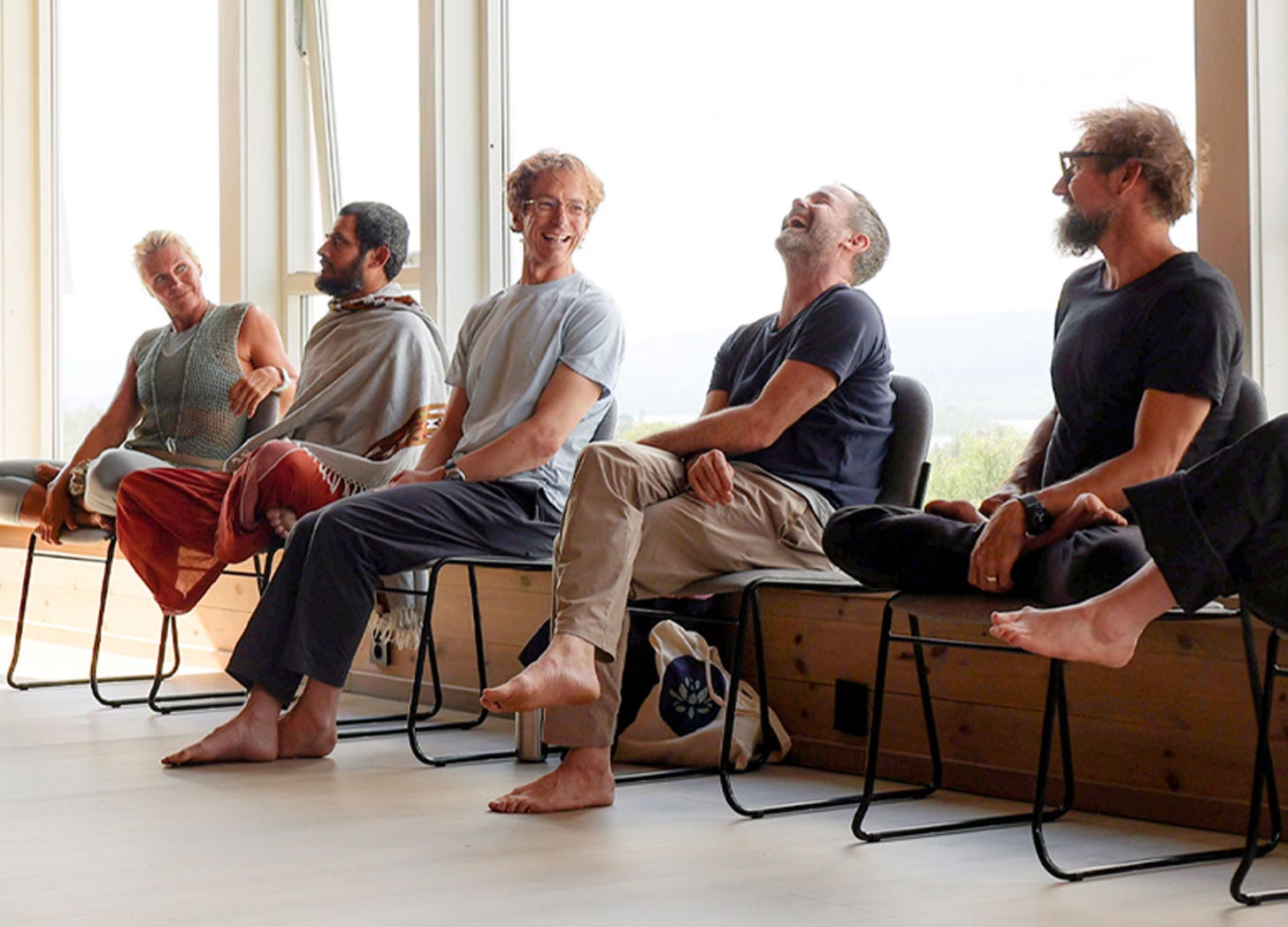Light-Hearted Dialogue
Reflections on facilitating group conversations
Part of what I like about hosting discussions – both on podcasts and courses – is the chance to encounter new ideas. For that to be feasible, I try to make space for a range of opinions – it would get a bit boring if we shared the same thoughts.

That’s not always easy to manage, however. Since all perspectives are welcome, there can at times be disagreements, which spiral if people get strident. So there’s a balance to be struck between self-expression and a need for moderation, which I occasionally provide by offering a counterpoint, or summing up ideas in more temperate terms.
To minimise the need for that, I share a few guidelines on how to engage. Here’s a taste of our “community agreements” on the year-long Path of Knowledge:
Speak from your own perspective rather than generalising (i.e. “I” not “we”). When expressing opinions, try to show why you hold them (e.g. “I think X because of Y”), and be open to hearing alternative interpretations of the same evidence.
Actively listen as opposed to just waiting for others to finish, and try to be mindful of whether you’re speaking more than them. It’s good to participate as fully as possible, but listening deeply can also be a way to refine your thoughts – as can jotting down notes.
Debate is encouraged, but be careful to focus on ideas not the person expressing them. If in doubt, be polite and respectful. This is a diverse international group, so it’s a great opportunity to hear how others think, and to consider perspectives you might not share.
It’s been heartening to read student feedback from last year’s course, which concluded this weekend. Reflecting on what they’d found helpful, one said “the people (different backgrounds, perspectives)” and “the group discussions every two weeks which were filled with real interactions and exchanges, where people were able to express their opinions in an atmosphere of respectful attention”.
Another said they valued being encouraged “to think for ourselves and engage with different ideas and concepts; curiously, yet critically and respectfully”. Moreover, by “listening and speaking to each other, trying to understand different points of view”, we might be engaging in “the most important practice” for the times we inhabit.
In some ways, it’s a form of yogic practice in itself. I find humour can also be helpful for lightening the mood – though that isn’t always to everyone’s taste. I’d be curious to hear what works for you to keep dialogue on track. Let me know in the comments!
If you’d like to join us on The Path of Knowledge, our first live session for 2025-26 is on Sunday (September 21) – so there’s still time to enrol and prepare. Learn more by clicking the button below, or send me an email if you have any questions.

If you’d like to support Ancient Futures, please consider paying to subscribe or send me fuel…


Thank you, Daniel 🙏🏻 I found this reflection both insightful and familiar.
It reminded me of something I encountered in Korea, which I came to call the “waterfall principle” in conversations. There, discussions often begin at a very high — even extreme — level, with deliberately provocative statements. The intent isn’t aggression but movement: to let ideas cascade downward, softening and settling until common ground naturally appears.
At first, this can feel confrontational to those unfamiliar with it. But once understood, it becomes clear that these strong openings are part of a graceful rhythm of Korean dialogue — one that begins in the heights and ends in harmony. Knowing this made even the most fiery debates feel light, almost like play.
Your call for light-hearted yet sincere dialogue reminded me of the art of speaking not to win, but to discover where the water meets stillness.